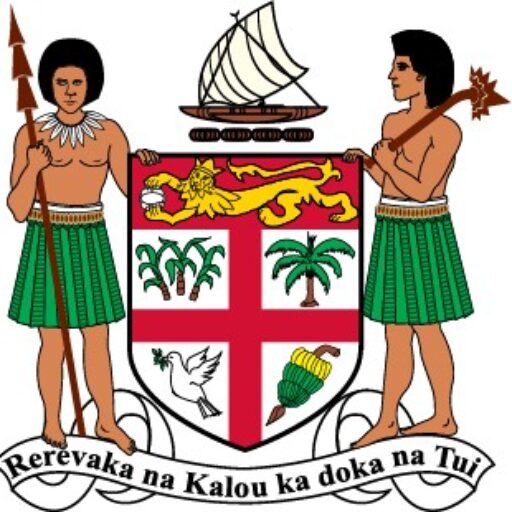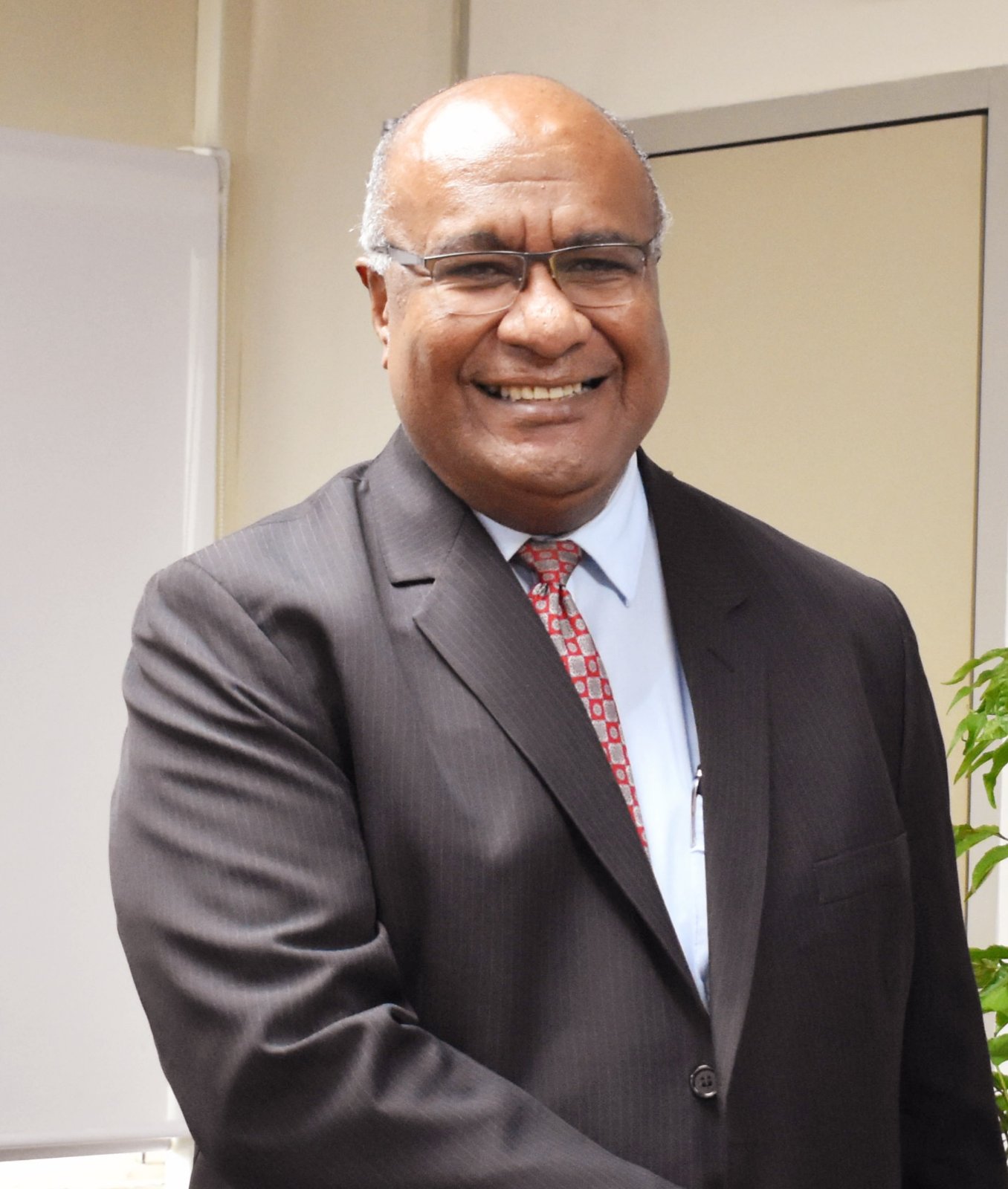Prime Minister of Fiji,
Minister for Agriculture, Environment and Waterways,
President of Australia Fiji and Fiji Aust Business Council,
Permanent Secretaries,
Members of Business Council,
Distinguished Guests,
Ladies and Gentlemen,
Bula Vinaka and a very good morning.
It gives me great pleasure to join you all this morning at the twenty-fifth Australia-Fiji Business Forum.
Fiji and Australia have strong and long-standing bilateral ties, with extensive people-to-people links and growing trade and investment ties.
In order to further strengthen our trade and investment relations, we have moved the Fijian Trade Commission office into city centre in Sydney, which has led us to redoubling our efforts in attracting more investments and finding market for Fijian made products.
Ladies and Gentlemen,
Fiji is an upper-middle-income country.
The foundations of the Fijian economy are built on stable economic and social reforms, which has boosted business confidence in Fiji.
The statistics which were presented yesterday speaks for itself, as to exactly how well our development is progressing.
Our trade is growing, jobs are increasing, our economic base is steadily expanding and diversifying. Tourism earnings are growing every year, our levels of foreign reserves remain strong and we continue to deliver development throughout the country at a pace Fiji has never experienced before.
Ladies and Gentlemen,
The Fijian Government has provided digital infrastructure that makes it possible for ICT based companies to do business easily.
A global survey on internet speed has found that Fiji has the fastest broadband speed, in comparison to the other Pacific Islands countries.
In Fiji, trade facilitation efforts are also in progress to support a more efficient and streamlined trade. This will assist in more efficient movement of goods and ultimately reduce the costs of doing business in Fiji.
Fiji is working towards the full implementation of an Electronic Single Window System, setting up National Trade Portal and improving on areas of Risk Management and Testing Infrastructure to reduce trade transaction costs and facilitate the digitalisation of trade procedures.
Ladies and gentlemen,
For a small open economy like Fiji, our government agencies and government policies aim to be pro-enterprise and pro-innovation. We are committed to working with our businesses to achieve these outcomes.
To remain competitive, we differentiate ourselves by having policies and regulations that position Fiji as an attractive place where ideas, talent and capital from the region can come together and produce results.
The Fijian Government is reviewing the investment law, so that we are able to better respond to the needs of the investors and create a modern investment climate. We are redefining the role of agencies, such as, Investment Fiji to focus on investment promotion and after care for investors.
We have also embarked on the establishment of Special Economic Zone. This will be a modern economic zone, and will support infrastructure and utilities for large scale ICT operations, warehousing facilities and medium to light manufacturing and services industries.
Moreover, Fiji also aims to strengthen its local government and town councils, which is currently undergoing a significant reform process.
Ladies and Gentlemen,
Developing pathways for agricultural market access is very important. Australia to date has facilitated the market access for 29 agricultural products. In comparison, New Zealand has facilitated the market access for around 52 agricultural products from Fiji.
Despite the Australian economy being seven times larger than New Zealand’s, Fiji’s exports to Australia is on par with our exports to New Zealand.
From 2010–2017, the study by PACER Plus negotiating parties indicated that Fijis total exports was about $6.5 billion during that period, of which $3.4billion was to Australia and $3.1 billion to New Zealand.
In fact, our exports to Australia should be much larger and diversified. At the moment 70 per cent of our exports to Australia is made up of two commodities – gold and garment. Therefore, the potential for Fijian exports to Australia is immense.
In terms of biosecurity standards for market access, mutual recognition of procedures between Australia and New Zealand would be beneficial for Fijian exporters.
For example, in terms of the issue of fruit fly, Fiji is able to export fruit fly host commodities to New Zealand following standard treatment.
Fiji acknowledges the recent developments made thus far in terms of granting market access for commodities like Kava. However, much more work can be done in this regard by Australia to expedite more pathways.
Ladies and Gentlemen
Regarding Pacer Plus, Fiji is very much still engaged as a negotiating party. It is worth noting that Fiji had initially narrowed its position in the Trade in Goods chapter to two issues, namely Infant Industry Development and Most Favoured Nation (MFN). Fiji has further narrowed its position to only one amendment to the MFN clause in the Agreement. We have requested for a slight change in the MFN provision, which effectively removes the contentious third-party MFN obligation on Fiji.
Fiji is conducting an impact study, which will include a comprehensive assessment of the PACER Plus legal text and the analysis of the Market Access Offer. The Study will evaluate the possible direct impact of PACER Plus on the Fijian economy. Such evaluation aim to assess the adjustment costs and benefits in terms of trade creation/diversion, revenue losses, producer and consumer welfare that Fiji is expected to face.
But I am also heartened by the suggestion made last night during dinner by Mr. Jonathan Pryke of Lowey institute, that Fiji and Australia should seriously consider a bilateral comprehensive trade and economic agreement. This is a valid suggestion, considering the maturity and history of our trading relations.
Ladies and Gentlemen,
Now moving on to Air Services Agreement, there is a clear misconception that under the current Air Services Agreement we have not increased the air seat capacity. In fact, seat capacity between Fiji and Australia was increased during October last year and recently in June by a total of 1,400 per week (700 each time).
Also, Fiji Airways will add two new Airbus A350 extra wide-bodied aircraft by Nov-Dec this year. This will significantly reduce the airline’s carbon footprint and fuel cost and increase seats and air freight capability.
As you know Qantas has entered the market and it is operating alongside Fiji Airways, Jetstar and Virgin.
It also flys into Fiji 7 days a week and owns jet star, making Qantas a dominant player in Fiji market. We would like to understand what is the rational of Qantas entering the Fijian market, noting that it is the major shareholder of Fiji Airways.
Ladies and Gentlemen,
Looking ahead, there is potential for us to do more together for the benefit of our businesses, our people and our country. I look forward to the many exciting initiatives and successful partnerships emerging from this Forum.
Vinaka Vakalevu. Thank you very much.



